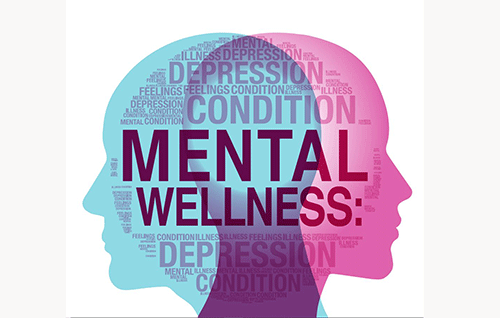KEETMANSHOOP – David (not his real name) has been suffering from a mental illness for several years, which was made worse by repeated periods of imprisonment.
Now 52, David grew up in a family where all his needs were always taken care of, almost to the point of spoiling him, leading him to become totally dependent on his parents.
When David’s parents died when he was 23 and he was left all alone, he opted to commit criminal activities to sustain the lifestyle he was used to, according to a family caretaker, who preferred anonymity.
She said this led to him being jailed several times, and the mental/emotional issues started to cement in his life, also made worse by drug and alcohol abuse.
“Despite being treated and admitted to mental health rehabilitation centres over time, David’s journey to total healing is still far from over,” she added.
Well-known clinical psychologist Dr Shaun Whittaker said communities should seriously consider avoiding attaching stigma to mental health sufferers.
He gave this professional opinion when interviewed by New Era in its effort to clear this highly discriminatory perception within communities.
“Society more than often forgets people experience emotional challenges.
The biggest factor to be considered here is that people are feeling they are hopeless at times, not in control of their life, or being able to manage their emotions,” he explained.
Whittaker said the reasons why people suffer from mental health issues can mainly be attributed to the fact that they lack proper nutrition, have been subjected to inhuman treatment experienced from the colonial era, lack a decent job, and lack income and shelter, to mention but just a few. He added that factors like society rejecting less fortunate citizens and the endless teasing and bullying of perceived weaker children at school level are other contributing factors.
“These social inequalities sometimes lead to high levels of trauma, anxiety, substance abuse, crime and suicide as a result of an unstable mental health condition in life,” he observed. The psychologist also warned that concentrating only on the medical aspect of treatment for the issue will not serve as an ideal solution. “You can prescribe tablets and tranquilisers to patients that can calm them down, but this is only a small part of treatment towards recovery for these patients,” he said.
Whittaker furthermore strongly recommended that society should be educated to accept mental health sufferers as just another important segment of the population like them, and to do away with stigmatisation towards such persons.
“We should also assist such patients to overcome this sense of helplessness, and to feel properly empowered to address it, since in the absence of this, society will forever have an issue of mental health to deal with,” he added.
The next step in addressing the phenomenon should be that of psychotherapy sessions, which can empower sufferers to reflect on themselves and their lives. “It will also help a lot in addressing the issue if we can establish thriving psycho education and self-help movements countrywide, especially in our rural areas,” he suggested. Workshops should likewise be conducted to address crucial issues in life like parenting, human sexuality, poverty, low self-esteem and understanding children with special needs.
“Mental health is certainly also a self-healing emotional process, which can enable patients to speak up on and express their emotional challenges more freely,” he said. He noted that the country is very fortunate to have government social workers and Life Skills teachers, and that these professionals should always consider the treatment of mental health cases as one of their core responsibilities at their workplaces.
In terms of early warning signs, he mentioned a significant change in behavioural patterns, as people always looking ‘down’ on others, unhealthy sleeping patterns, loss of appetite and emotional mood swings as main signs of mental health sufferers. “I hereby wish to call on the nation to observe such signs in the community, and to rather help those suffering from it, instead of rejecting and ignoring them,” the psychologist said.
State mental health services are currently available at the Windhoek Mental Healthcare Centre and the Oshakati psychiatric ward, whilst the Okonguari Psychotherapeutic Centre near Outjo are catering for private patients. The centre in Windhoek provides outpatient and inpatient services for adults and children, with the forensic psychiatric wing located in the same centre with a full range of health professionals like psychiatrists, psychiatric nurses, clinical psychologists, social workers and occupational therapists. - sklukowski@nepc.com.na


